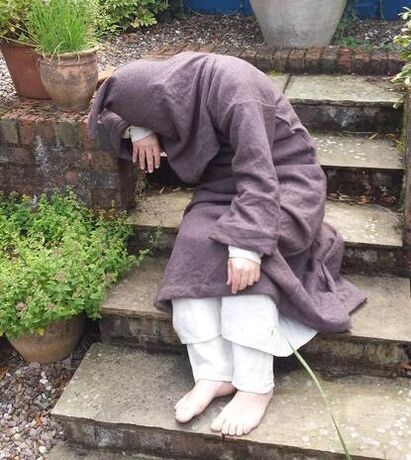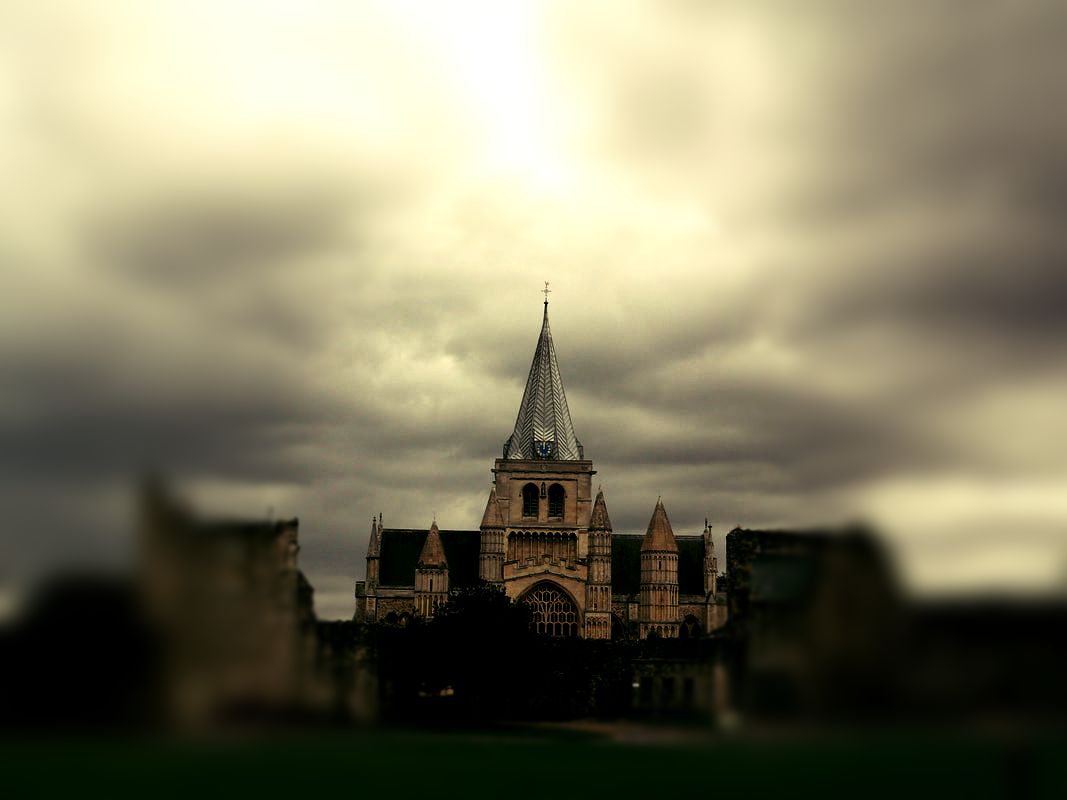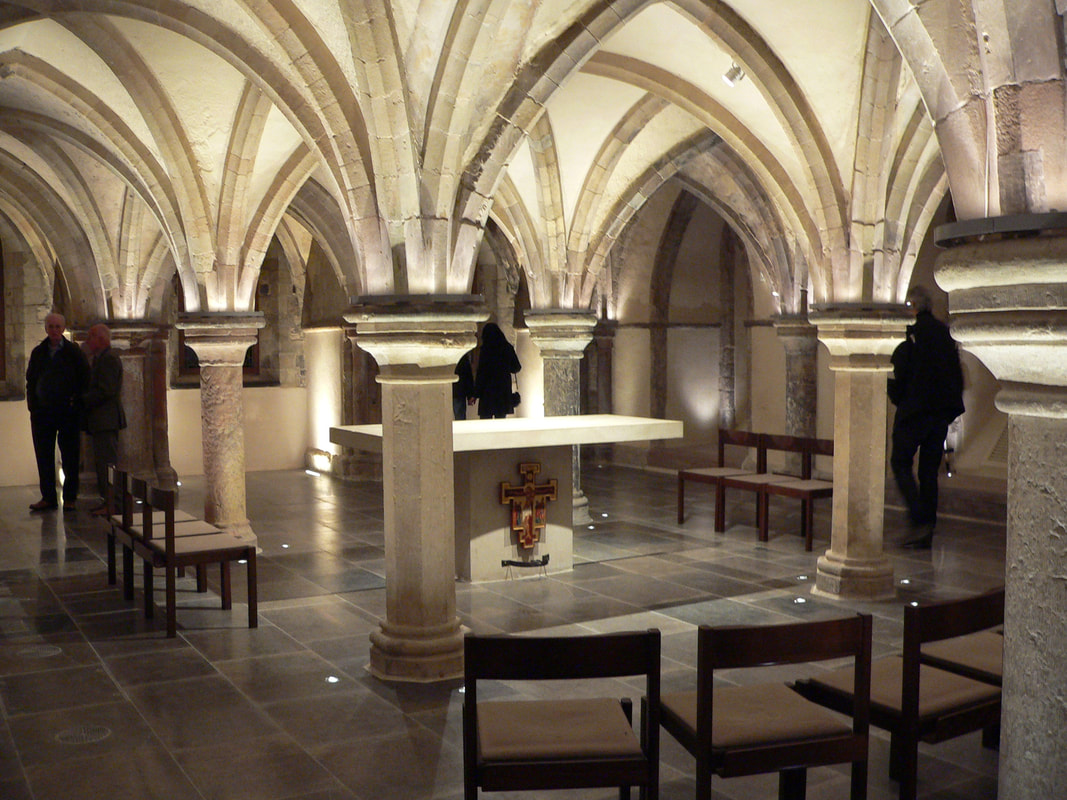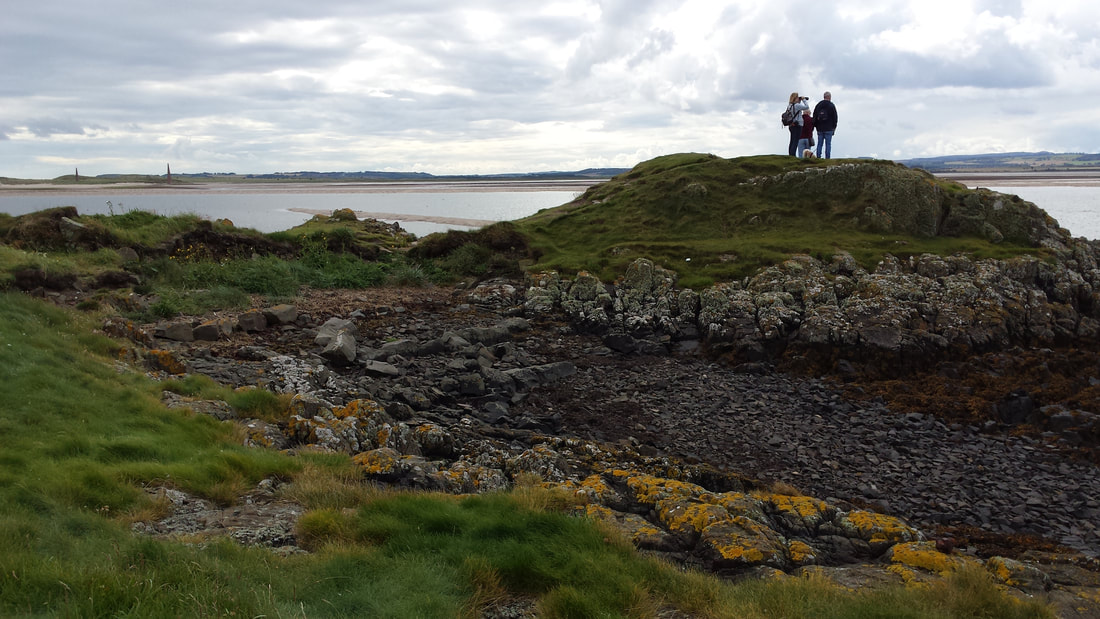|
Blessed readers, Verily, I have been blessed myself this week with a fascinating tale from the eleventh century, which I really must get to the bottom of, and which I most heartily desire to share with you. My brethren and I were so excited to hear about it yesterday morning that we almost didn't make it to matins. It's all about a monk from Canterbury named Joseph who wangles a visit to the imperial chapel at Constantinople where he discovers the very bones of his favourite saint, St Andrew, among the treasures there. Nothing gets a monk more excited than bones! Now I don't wish to retell the whole story here, I'd much rather you read it for yourself, but I will just say that my fellow Benedictine monk knew that he just had to obtain these relics of St Andrew to take back to England as a gift for his neighbouring brethren at Rochester Cathedral, which is, as I'm sure the more enlightened of you know, dedicated to the very same saint. Did he succeed? Well you can find out for yourself now in your own tongue, for the most blessed Charles West has kindly produced the first translation from Latin of the the only surviving account of our intrepid monk Joseph. Just click on the button below.
0 Comments
The Anglo-Saxon Monk casts his eye over the letter written to the bishop of Lindisfarne not long after the island was attacked by Vikings. Blessed readers, That rascal, the other Monk, has been gadding about once more, alighting upon the holy ground of Lindisfarne, posturing meditatively along its monastic landscape, whilst pontificating on the raid there by the Vikings in the year 793. This is all for the first episode of the fourth series of Medieval Dead, due out in March next year. I did think of a more relevant, dare I say worthy, interviewee, but he was not asked. Anyhow, let us move forward, beloved ones. Now, I am quite convinced that, despite my best efforts, most of you probably hold at least a few warped views about life in early medieval England, not least when it comes to the matter of the Vikings. I know for a fact that most of you cannot even say the word 'Vikings' without shouting it and flailing your arms around in some unseemly violent gesture as if that somehow adds meaningful emphasis. I should perhaps, therefore, be attempting to paint a more rounded understanding of Viking culture, by taking a look at Viking architecture, for example, or Viking art, but I'm afraid I'm going to have to temporarily ignore my urges for balance and go right on and reinforce the stereotypes by looking at one of the first Viking raids ever recorded in Anglo-Saxon history.
|
Details
|




